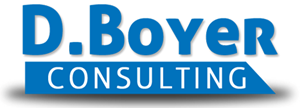Business is mostly conducted via email or phone communications.
Office hours 10:00 a.m. to 6:00 p.m, Mon. - Thurs., and 10:00 a.m. to 2:00 p.m. on Fridays.
SEND EMAIL INQUIRIES DIRECTLY TO:
Dawn.Boyer@me.com
Business is mostly conducted via email or phone communications.
Office hours 10:00 a.m. to 6:00 p.m, Mon. - Thurs., and 10:00 a.m. to 2:00 p.m. on Fridays.
SEND EMAIL INQUIRIES DIRECTLY TO:
Dawn.Boyer@me.com
Business is mostly conducted via email or phone communications.
Office hours 10:00 a.m. to 6:00 p.m, Mon. - Thurs., and 10:00 a.m. to 2:00 p.m. on Fridays.
SEND EMAIL INQUIRIES DIRECTLY TO:
Dawn.Boyer@me.com
Build Trust Via Social Networking
May 6th, 2014 by Dawn Boyer
Three ways to build trust via social networking
Build a level of trust with connections on social media to gain future business or obtain additional knowledge
You get invites to connect on LinkedIn. You get friend requests on Facebook. You exchange follows on Instagram and Twitter. You probably don’t know these folks, or they are 2-3 degrees away from your primary circle of close friends. No one can possibly know over 1,000 to 3,000 business professionals, hence limits for social media invitations.
Can you get to know – and trust – others … even if you’ve never met them? The growing trend is for telecommute and work from home jobs, especially for multiple streams of income. More businesses have employees dispersed throughout a city, state, or even around the world. It’s hard to make personal connections, much less professional connections, and feel part of a group or a team. Even harder – building relationships based on trust.
So how to you build trust with digital connections, and are the exchanges of advice, ideas, and suggestions trustworthy? If a person is collaborative, responsive, and supportive in answering questions, as they engage in social learning, social networking, and socializing, you essentially get a positive assessment of their character despite the communications happening in the digital world. Use these guidelines to build camaraderie with others online and showcase your capabilities and offerings from your own experience and knowledge base.
Give.
Be willing to provide some educational information to what may be a potential client. This builds the trust between you. Listen to the topic and ask questions to get a better idea of what they are seeking – a solution, a rant, better ideas, or filling a knowledge gap. What is the result? You – as the helper – seem thoughtful, knowledgeable, and authentic, as well as personable and approachable. You have taken the seeker of information under your wing (personal interest) and helped others become the best they can be within the context of the social networking interaction. And you become known as a genuine and caring member of the networking community. With luck, those who sought the information, will in turn, share with others – passing it forward.
Be humble and courageous.
You have to demonstrate your knowledge, and in some cases provide samples or trial by fire lessons. Does tattling on yourself having lost a battle or talking about not being able to solve a problem in the past make you look weak? It could occur, but being able to talk about it and refer back to when it happened, shows how you are stronger and smarter for it. Trust is built when you talk about your own shortcomings and vulnerabilities, which simply states, “I am human, too.” Authentic knowledge builds cultural bridges between connections where sharing of relevant information can affect real world problems.
Be honest and open.
Honesty builds trust and confidence. When folks have built a reputation for being honest and trustworthy, the integrity associated with your name – and business brand – grows with that reputation. Showing a mental capacity to listen and ask questions helps increase the understanding of the topics within a conversation. This assists in the social networks being more in-tune to who needs to connect with whom and growing of the circle of trust.
The 21st Century workplace is growing more unique as available technologies grow workers physically apart, while bringing them closer together in faster methods of and more varied selection of communications. In the absence of face-to-face meetings where body language can be interpreted, workers need to learn more and other methods of building trust over digital highways.
A community – whether within one company or within an eclectic mix of social networks that includes family, neighbors, friends, and co-workers – comes together with a common thread, and collaborate towards a meaningful goal. Building the trust, sharing ideas, insights, and viewpoints start building the trust, and enables members of the community to be responsive.
Building a social network of available networks within communities (each social network platform can be considered a community in and of itself) creates a group of colleagues upon which an inner circle of trust can be built. The more shared knowledge, the most connections of trust. This makes each social media network a richer experience for those who reach out to help others, thus building the trust factor.
Related post: Fending Off the Wolves and Pimps on LinkedIn – https://dboyerconsulting.com/fending-off-the-wolves-and-pimps-on-linkedin/
Dawn Boyer, Ph.D., owner of D. Boyer Consulting – provides resume writing, social media management and training, business development, and human resources consulting. Reach her at: Dawn.Boyer@DBoyerConsulting.com or https://dboyerconsulting.com.
Build Trust Via Social Networking
May 6th, 2014 by Dawn Boyer
Three ways to build trust via social networking
Build a level of trust with connections on social media to gain future business or obtain additional knowledge
You get invites to connect on LinkedIn. You get friend requests on Facebook. You exchange follows on Instagram and Twitter. You probably don’t know these folks, or they are 2-3 degrees away from your primary circle of close friends. No one can possibly know over 1,000 to 3,000 business professionals, hence limits for social media invitations.
Can you get to know – and trust – others … even if you’ve never met them? The growing trend is for telecommute and work from home jobs, especially for multiple streams of income. More businesses have employees dispersed throughout a city, state, or even around the world. It’s hard to make personal connections, much less professional connections, and feel part of a group or a team. Even harder – building relationships based on trust.
So how to you build trust with digital connections, and are the exchanges of advice, ideas, and suggestions trustworthy? If a person is collaborative, responsive, and supportive in answering questions, as they engage in social learning, social networking, and socializing, you essentially get a positive assessment of their character despite the communications happening in the digital world. Use these guidelines to build camaraderie with others online and showcase your capabilities and offerings from your own experience and knowledge base.
Give.
Be willing to provide some educational information to what may be a potential client. This builds the trust between you. Listen to the topic and ask questions to get a better idea of what they are seeking – a solution, a rant, better ideas, or filling a knowledge gap. What is the result? You – as the helper – seem thoughtful, knowledgeable, and authentic, as well as personable and approachable. You have taken the seeker of information under your wing (personal interest) and helped others become the best they can be within the context of the social networking interaction. And you become known as a genuine and caring member of the networking community. With luck, those who sought the information, will in turn, share with others – passing it forward.
Be humble and courageous.
You have to demonstrate your knowledge, and in some cases provide samples or trial by fire lessons. Does tattling on yourself having lost a battle or talking about not being able to solve a problem in the past make you look weak? It could occur, but being able to talk about it and refer back to when it happened, shows how you are stronger and smarter for it. Trust is built when you talk about your own shortcomings and vulnerabilities, which simply states, “I am human, too.” Authentic knowledge builds cultural bridges between connections where sharing of relevant information can affect real world problems.
Be honest and open.
Honesty builds trust and confidence. When folks have built a reputation for being honest and trustworthy, the integrity associated with your name – and business brand – grows with that reputation. Showing a mental capacity to listen and ask questions helps increase the understanding of the topics within a conversation. This assists in the social networks being more in-tune to who needs to connect with whom and growing of the circle of trust.
The 21st Century workplace is growing more unique as available technologies grow workers physically apart, while bringing them closer together in faster methods of and more varied selection of communications. In the absence of face-to-face meetings where body language can be interpreted, workers need to learn more and other methods of building trust over digital highways.
A community – whether within one company or within an eclectic mix of social networks that includes family, neighbors, friends, and co-workers – comes together with a common thread, and collaborate towards a meaningful goal. Building the trust, sharing ideas, insights, and viewpoints start building the trust, and enables members of the community to be responsive.
Building a social network of available networks within communities (each social network platform can be considered a community in and of itself) creates a group of colleagues upon which an inner circle of trust can be built. The more shared knowledge, the most connections of trust. This makes each social media network a richer experience for those who reach out to help others, thus building the trust factor.
Related post: Fending Off the Wolves and Pimps on LinkedIn – https://dboyerconsulting.com/fending-off-the-wolves-and-pimps-on-linkedin/
Dawn Boyer, Ph.D., owner of D. Boyer Consulting – provides resume writing, social media management and training, business development, and human resources consulting. Reach her at: Dawn.Boyer@DBoyerConsulting.com or https://dboyerconsulting.com.












